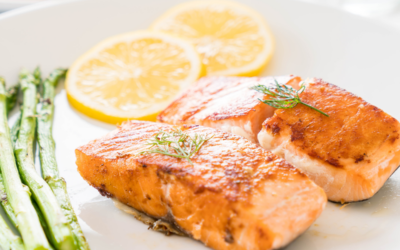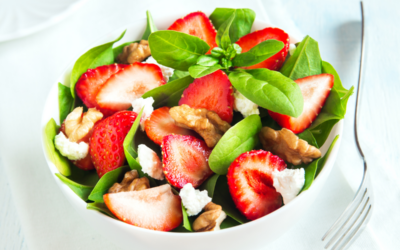Summary:
This article will provide a guide on how to combat spring allergies with four natural remedies, including:
1. Diet and nutrition through eating lots of fruits and vegetables.
2. Home remedies like essential oils and nasal rinses.
3. Lifestyle changes like showering before bed.
4. Alternative treatments like acupuncture.
Spring allergies, also known as seasonal allergies or hay fever, are common allergic reactions when your immune system overreacts to pollen from trees, grasses, and weeds.
Finding natural remedies for spring allergies is essential for several reasons. Firstly, many people prefer natural remedies over medications because they
Identify common spring allergy triggers
Pollen from trees, grass, and weeds
Pollen from trees, grass, and weeds is one of the most common triggers
Dust mites, pet dander, and mold
In addition to pollen, other typical spring allergy triggers include dust mites, pet dander, and mold. Dust mites are tiny creatures that live in dust and can be found in bedding, carpets, and upholstered furniture. They can trigger allergy symptoms like sneezing and wheezing. Additionally, pet dander, made up of tiny flakes of skin, hair, and saliva from pets like cats and dogs, can also trigger allergies in some people. Furthermore, mold, a fungus that thrives in damp and humid conditions, can also be a common allergy trigger in the spring. Mold spores can be found in the air
Food allergens
While less common than pollen, dust mites, pet dander, and mold, food allergens can also trigger spring allergies
Natural remedies for spring allergies
1. Diet and Nutrition
Here are some dietary recommendations
- Eat plenty of fruits and vegetables: Fruits and vegetables are rich in antioxidants and other nutrients
that reduce inflammation and support the immune system. Aim for at least five servings per day. - Incorporate anti-inflammatory foods: Foods like turmeric, ginger, garlic, and omega-3-rich fatty fish
can reduce inflammation in the body, whichcan alleviate allergy symptoms. - Avoid inflammatory foods: Some foods can increase
inflammation and worsen allergy symptoms. These include processed foods, sugar, and refined carbohydrates. - Stay hydrated: Drinking plenty of water
can flush out allergens and reduce inflammation. - Consider supplements: Supplements like quercetin, vitamin C, and probiotics
may reduce allergy symptoms by supporting the immune system and reducing inflammation.Consult a healthcare professional beforetaking supplements.
2. Home Remedies
In addition to dietary changes, there are several natural
- Saline nasal rinse: A saline nasal rinse can help flush out allergens and irritants from your nasal passages, reducing congestion and inflammation. You can purchase a nasal rinse kit from a pharmacy or make your own by mixing a quarter teaspoon of salt with eight ounces of warm water.
- Steam inhalation: Inhaling steam
can relieve nasal congestion and ease breathing. You can do this by boiling water andinhaling steam or taking a hot shower. - Herbal tea: Drinking herbal tea
can soothe allergy symptoms like a sore throat and coughing. Chamomile, peppermint, and gingerteas are all good options. - Honey: Honey has natural anti-inflammatory properties and
may reduce allergy symptoms. Try adding a teaspoon of honey to your tea or eating it alone. - Essential oils: Certain essential oils, like peppermint and eucalyptus,
can alleviate allergy symptoms by opening up the nasal passages and reducing inflammation. Add a few drops to a diffuser or mix with a carrier oil and apply topically.
3. Lifestyle Changes
Making lifestyle changes can
- Keep windows and doors closed: Keeping windows and doors closed
can prevent pollen and other allergens from entering your home. Use an air purifier with a HEPA filter to further reduce allergens in the air. - Wear a mask when outside: A mask
can filter out pollen and other allergens outdoors. Choose a high filtration efficiency mask, such as an N95 mask. - Take a shower before bed: Taking a shower before bed can help wash away pollen and other allergens from your skin and hair, reducing your exposure to allergens while you sleep.
- Clean regularly: Regularly cleaning your home
can reduce dust, pet dander, and mold in the air.Use a HEPA filter vacuum and wash bedding and soft furnishings in hot water. - Avoid outdoor activities during high pollen counts: Check local pollen counts and avoid outdoor activities when pollen counts are high.
By making these lifestyle changes, you can reduce your exposure to allergens and alleviate your symptoms.
Alternative Treatments
Acupuncture
Acupuncture is a traditional Chinese medicine practice that involves inserting thin needles into specific points on the body. This practice is believed
Acupuncture may be an effective treatment for spring allergies, as it has been shown
During an acupuncture session, the practitioner
While acupuncture is generally considered safe, it’s
Chiropractic care
Chiropractic care is a holistic healthcare practice focusing on the relationship between the spine and the nervous system. Chiropractors use manual manipulation techniques to realign the spine and improve
Chiropractic care may be an effective treatment for spring allergies, as it
During a chiropractic session, the chiropractor will assess your spine and use manual manipulation techniques to realign any misalignments or subluxations. That
While chiropractic care is generally considered safe, it’s
Homeopathy
Homeopathy is a
Homeopathy may be an effective treatment for spring allergies, as it
During a homeopathic consultation, the homeopath will assess your symptoms, medical history, and overall health to determine the
While homeopathy is generally considered safe, it’s
Takeaway
Spring allergies can be uncomfortable and interfere with daily life, but there are natural remedies that
However, it’s essential to consult a healthcare professional before trying
In addition, a healthcare professional can help you determine which treatments are safe and appropriate for your















